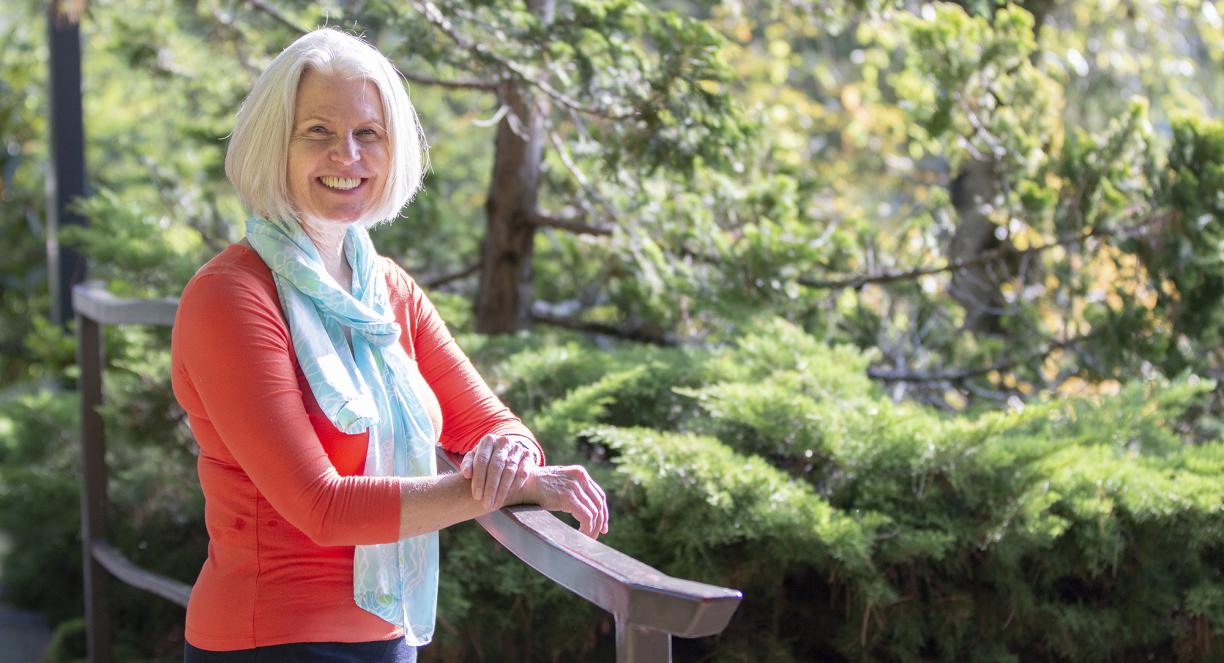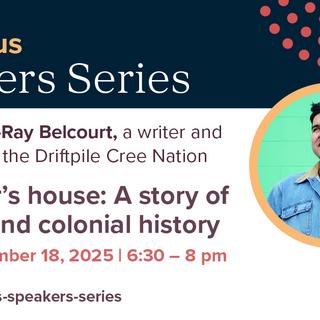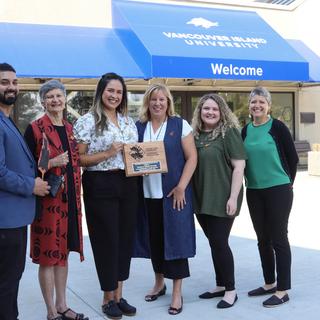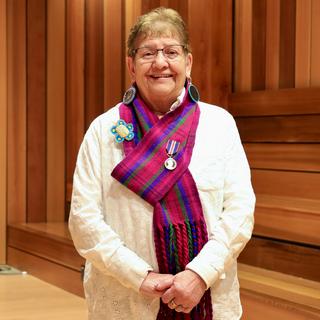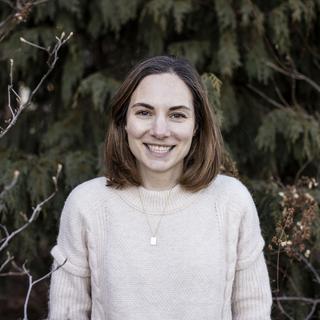Dr. Cynthia-Lou Coleman is Vancouver Island University’s 2019 Fulbright Canada Jarislowsky Foundation Visiting Research Chair in Aboriginal Studies.
Dr. Cynthia-Lou Coleman is curious about the similarities and differences between how Indigenous scientific and cultural issues are covered by the media in Canada and the United States.
Coleman, Vancouver Island University’s (VIU’s) 2019 Fulbright Canada Jarislowsky Foundation Visiting Research Chair in Aboriginal Studies, will explore the issue over the next four months. Coleman is a professor in the Department of Communication at Portland State University. Her work has been widely published in numerous academic journals and she has presented at conferences in the United States, Canada and United Kingdom.
“It really is an honour,” says Coleman about being chosen as a Fulbright Scholar. “It’s a wonderful program.”
Coleman intends to examine how scientific and cultural issues are discussed or overlooked in various communications channels, such as news and entertainment programs, websites public forums and social media. She will also explore how Indigenous Peoples, policy-makers, journalists and community members feel about how these issues are covered.
Her project is called Comparing Science, Culture and Discourse about Indigenous Issues in Canada and the United States. It will help inform her book Studies in Media and Environmental Communication, which summarizes two decades of her research on how scientific and cultural issues that influence American Indian communities are framed.
“I look forward to working with and learning from Coleman,” says Dr. Carol Stuart, VIU Interim Provost and Vice-President Academic. “Her research will help us further our efforts at VIU to ensure Indigenous voices and perspectives are present in academia.”
Coleman is embracing a place of openness in her research and wants to look where “the light doesn’t shine.” Coleman says it’s like a story she once heard about a man searching for his keys under a lamp post. He can’t find his keys and another man comes by and asks the first what he is doing. The first replies “looking for my keys.” When asked where he put them, the first man points to the bushes off in the darkness. The second man is puzzled and asks the first why he is searching under the lamp post when he knows the keys are in the bushes. The first replies “because that is where the light is.”
Coleman says sometimes it is easier to look where the light is shining, but she wants to peer into the darkness.
“I want to find out what I am missing. What I can’t see. I may not know what I am looking for,” says Coleman. “I’ve been given permission for four months to look, learn and listen.”
She hopes people are kind enough to invite her into their spaces, whether it’s a classroom, their home or an art studio, and share their perspectives with her.
-30-
MEDIA CONTACT:
Rachel Stern, Communications Officer, Vancouver Island University
P: 250.740.6560 l C: 250.618.0373 l E: Rachel.Stern@viu.ca | T: @VIUNews

